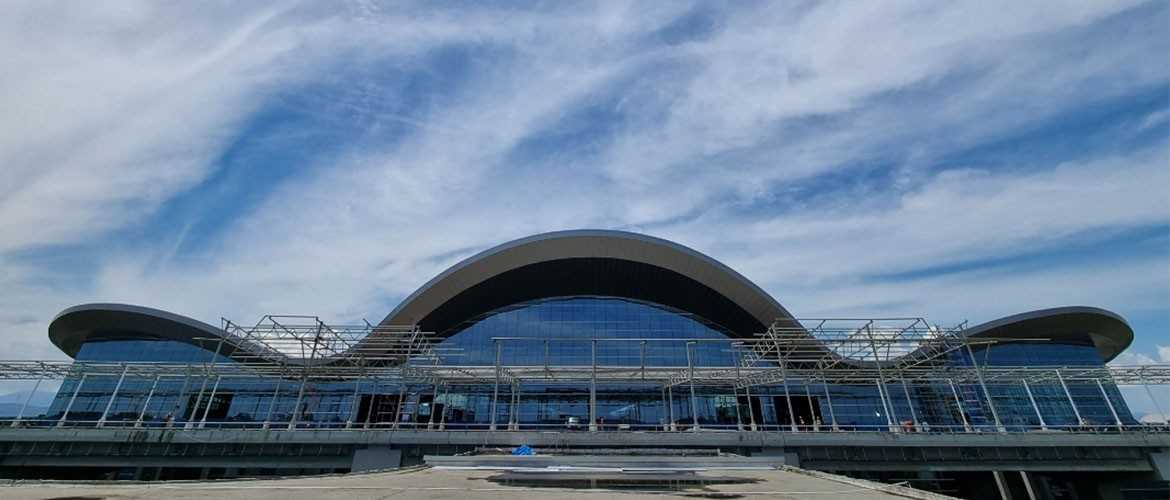13 Sep 2021
Back to List
JAKARTA - Realization of the Domestic Component Level (TKDN) in three AP 1’s airport development projects reached 78.76 percent, equivalent to an investment value of Rp3.61 trillion out of a total of Rp4.53 trillion.
The three airport development projects consisted of the development of Sultan Hasanuddin Airport in Makassar, the construction of new terminal building at Syamsudin Noor Airport in Banjarmasin, and construction of train station at Yogyakarta International Airport (YIA) in Kulon Progo.
The largest utilization of TKDN was in the development project of Sultan Hasanuddin Airport in Makassar with an investment value of Rp2.6 trillion or 79 percent out of the total investment of Rp3.11 trillion. The second position was in the construction of new terminal building project at Syamsudin Noor Airport in Banjarmasin with an investment value of Rp992 billion or 71.24 percent out of the total investment of Rp1.39 trillion, while the third position was in the construction of train station at Yogyakarta International Airport (YIA) with an investment value of Rp24.4 billion or 85.81 percent out of the total investment of Rp28.44 billion.
“Angkasa Pura Airports is committed to continuously increasing the utilization of domestic component level in airport development and construction project and its supporting facilities, both in the form of goods and services. This is intended to support the development of local and national industries and support the implementation of Presidential Decree No. 24/2018 on the National Team for the Increased Utilization of Domestic Products and Government Regulation No. 29/2018 on Industrial Empowerment,” said President Director of Angkasa Pura Airports, Faik Fahmi.
All work and distribution of materials on the development projects at the three airports above were carried out by domestic companies, PT Wijaya Karya (Persero) Tbk. and PT Waskita Karya (Persero) Tbk. for the development project of Sultan Hasanuddin Airport in Makassar, KSO-PT Wijaya Karya (Persero) Tbk. and PT PP (Persero) Tbk. for the construction of new terminal building project at Syamsudin Noor Airport in Banjarmasin, and PT PP (Persero) Tbk. for the construction of train station at YIA. The domestic materials used for the airport construction projects were metal ceiling, TPO roofing, carpet, linear metal ceiling - CF5, List Plank ACP, capping ACP, pile materials, concrete, backfill sand, wiremesh, floor tiles, sanitary ware, and others.
Meanwhile, in terms of support services for operations, such as information technology, the investment value of TKDN from 2018 to 2021 was Rp133.8 billion or 41.23 percent of the total investment of Rp324.71 billion. Total jobs related to information technology since 2018 was 43 jobs, where there were 17 jobs in 2018, 16 jobs in 2019, 7 jobs in 2020, and 3 jobs in 2021. Some examples of work related to information technology investment at the Company’s Airports are the construction of Airport Operation Control Center (AOCC), the development of e-inspection airport operation system and various other applications, the implementation of new e-procurement system, procurement of flap barriers, and many others.
In the electrical sector, the realization of TKDN from 2018 to 2021 was 18.28 percent or equivalent to an investment value of Rp20.57 billion of the total investment in the electrical sector of Rp112.49 billion. Some examples of work in the electrical sector include the installation of a power panel chiller at Jenderal Ahmad Yani Airport in Semarang, optimization of electricity system at Sentani Airport in Jayapura, installation of a 50 KVA UPS at I Gusti Ngurah Rai Airport in Bali and El Tari Airport in Kupang, installation of perimeter lights at Adi Soemarmo Airport in Solo and others.
“We hope that Angkasa Pura Airports can help the domestic industries to survive during the Covid-19 pandemic and continue to move the wheels of the national economy,” said Faik Fahmi.
Up
